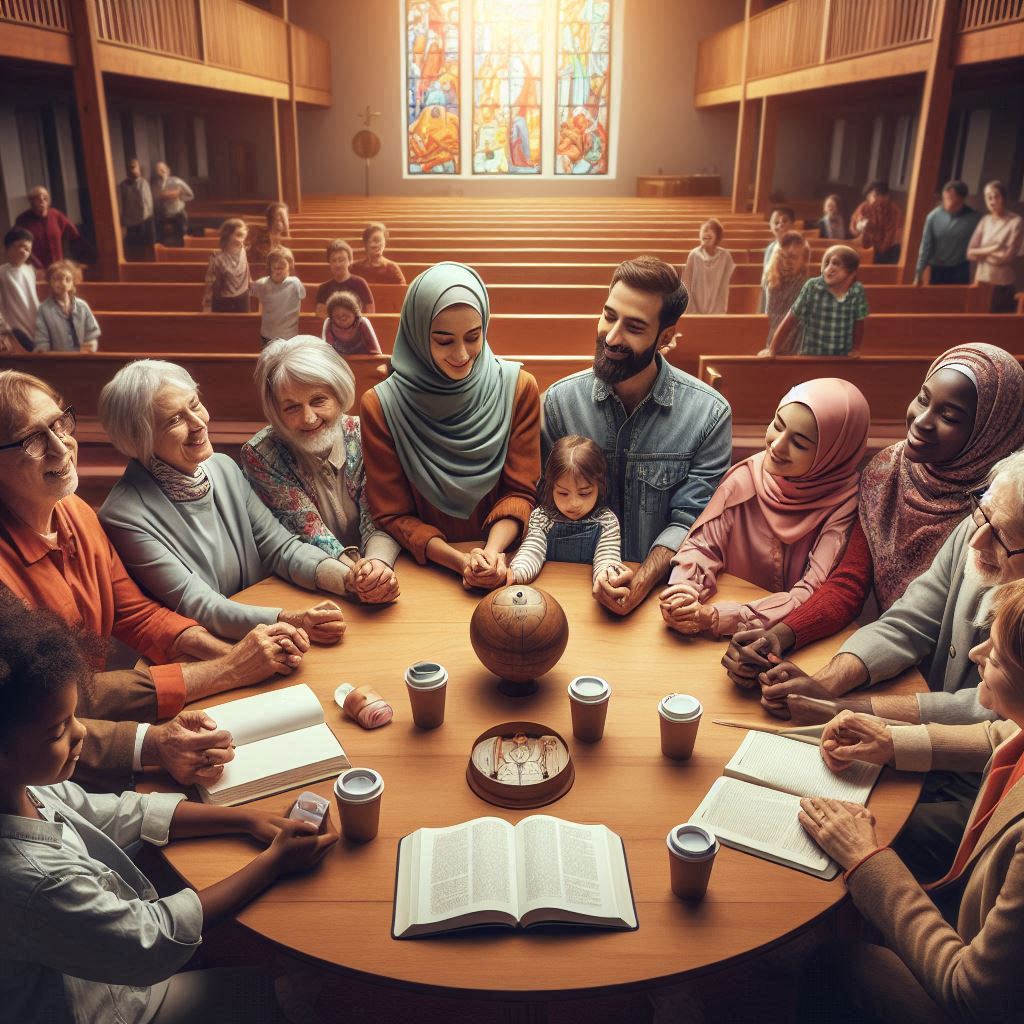7th February, 2026
A Fountain Publication

The Lodestar
Online Magazine for the Thinking Christian

Views
Embracing Diversity in Church Communities
Discover how churches can embody Jesus' teachings by building inclusive communities that welcome everyone. Dive into embracing diversity, practising love and compassion, encouraging participation, breaking down barriers, and fostering open dialogue.
By Hemamalini on 31st January, 2025
In the modern world, churches have an extraordinary opportunity to embody the teachings of Jesus by fostering inclusive communities that welcome people from all walks of life. Breaking down barriers within the church is not just a social responsibility but a spiritual calling that reflects the very heart of Christianity. As Paul writes in Galatians 3:28, “There is neither Jew nor Gentile, neither slave nor free, nor is there male and female, for you are all one in Christ Jesus.”
Embracing Diversity
The foundation of an inclusive church lies in embracing diversity. This means recognising and valuing the differences in race, ethnicity, age, gender, socioeconomic status, and abilities. In Revelation 7:9, we are given a glimpse of heaven's inclusivity: “After this I looked, and there before me was a great multitude that no one could count, from every nation, tribe, people and language, standing before the throne and before the Lamb.” By mirroring this heavenly vision on earth, churches can create spaces where everyone feels valued and accepted.
Practising Love and Compassion
Jesus' ministry was marked by love and compassion for all, especially those marginalised by society. He often reached out to the outcasts, healing the sick, and embracing the sinners. Matthew 25:40 reminds us, “Truly I tell you, whatever you did for one of the least of these brothers and sisters of mine, you did for me.” Churches are called to follow this example, extending kindness and support to all members, particularly those who may feel unwelcome or overlooked.
Encouraging Participation and Leadership
True inclusivity goes beyond welcoming individuals; it involves actively encouraging their participation and leadership within the church. Romans 12:4¬—6 highlights the importance of diverse gifts in the body of Christ: “For just as each of us has one body with many members, and these members do not all have the same function, so in Christ we, though many, form one body, and each member belongs to all the others. We have different gifts, according to the grace given to each of us.” By recognising and nurturing these gifts, churches can ensure that everyone has the opportunity to contribute meaningfully to the community.
Breaking Down Physical and Social Barriers
Inclusivity also means addressing the physical and social barriers that prevent people from fully participating in church life. This can include making the church accessible to those with disabilities, providing translation services for non-native speakers, and creating programs that support the needs of various groups within the congregation. In Acts 2:44-45, the early church exemplified communal support: “All the believers were together and had everything in common. They sold property and possessions to give to anyone who had need.” Following this model, churches can work towards removing obstacles that hinder full inclusion.
Promoting Open Dialogue
Creating an inclusive community involves fostering open and honest dialogue about the challenges and opportunities of diversity. This requires a commitment to listening and learning from one another, acknowledging biases, and working collaboratively to build a more inclusive church. James 1:19 advises, “My dear brothers and sisters, take note of this: Everyone should be quick to listen, slow to speak and slow to become angry.” By promoting respectful conversations, churches can cultivate mutual understanding and growth.
Building inclusive communities within the church is vital to expressing Christ’s love and teachings. Churches can become sanctuaries of acceptance and belonging by embracing diversity, practising love and compassion, encouraging participation and leadership, breaking down barriers, and promoting open dialogue. As we strive to reflect the unity and inclusivity of the Kingdom of God, we fulfil our calling to be Jesus' hands and feet, extending His grace to all.
May our churches be places where every individual feels cherished and the love of Christ is made manifest in our inclusive and welcoming communities.
(Hemamalini is from Chennai, Tamil Nadu, and she is passionate about writing and blogging. She enjoys expressing her thoughts and connecting with readers on intriguing topics. Additionally, she loves exploring new places, meeting people, and embracing diverse experiences.)
Share this Article
Advertisements
Explore More on The Lodestar

Apologising: The Overlooked Virtue in Christian Leadership
In Christian leadership, apologising is often neglected—yet it reveals true spiritual maturity and humility, fostering genuine restoration and deeper ministry impact.

Christian Perspectives on Managing Suicide
Christian perspectives offer hope to those facing suicidal thoughts, emphasising faith, community support, and the sanctity of life while encouraging holistic care and compassionate intervention.
Subscribe to our free weekly digest.
Join hundreds of others who have subscribed to our free weekly digest for inspiring news, faith, community, family, opinion, and culture content. Stay connected and nurture your spiritual growth with thought-provoking articles delivered straight to your inbox.
Join our growing community of readers today.

